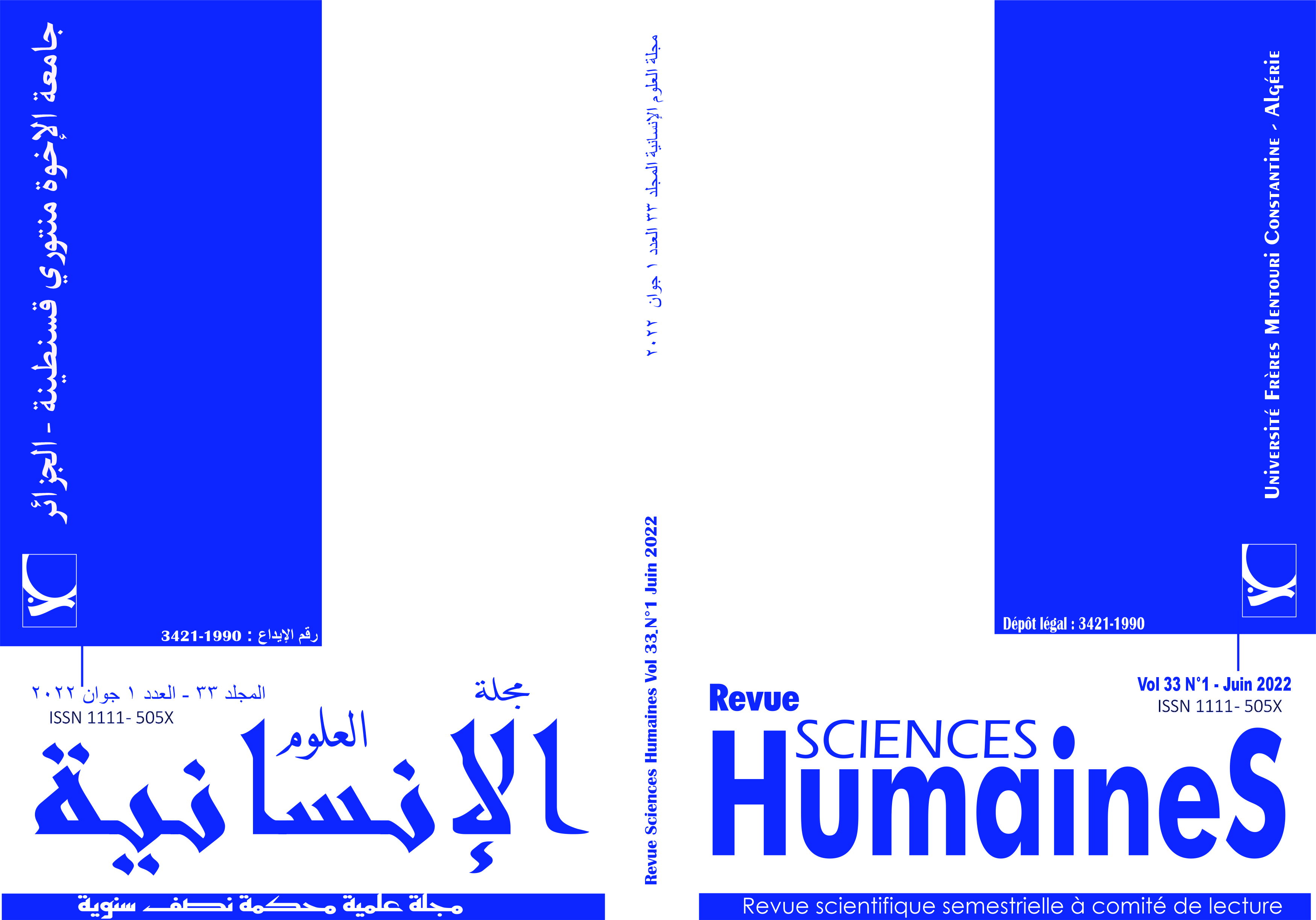Female Breadwinners in the Algerian Household: the Paradox of Empowerment
الكلمات المفتاحية:
breadwinning، female well-being، governmentality، agencyالملخص
In Algeria, an increasing number of females are facing the reality of being the primary or sole earner in their households in addition to bearing the responsibility of domestic labor that remains static within the family. In the present research work, we hypothesize that women empowerment through access to education and finances may have a positive impact on women’s personal well-being but inflict negative outcomes on their family well-being when they are the primary breadwinner or higher earner. The quantitative findings reveal that women’s psychological well-being is positively impacted by their status given that it guarantees them independence and fulfills their sense of achievement. Whereas the family well-being variable was found to be negatively impacted by their status. We further elucidated women’s interaction patterns within the household through the qualitative findings that report the existence of techniques of governmentality that keep women’s subordination within the household.
التنزيلات
المراجع
. Alesop, Ruth, Heinsohn, Nelly. World Bank Policy Research Working Paper, 2005. Available at: (https://openknowledge.worldbank.org/bitstream/handle/10986/8856/wps3510.pdf?sequence=1)
. Assad, Talal. Formation of the Secular: Christianity, Islam, Modernity. Stanford, CA, 2003.
. Avishai, Orit. "Doing Religion" in a Secular World: Women in Conservative Religions and the Question of Agency. Gender and Society, 22(4), 2008. 409-433. Retrieved July 27, 2020, from www.jstor.org/stable/27821661.
. Bresser, Nina and Knittel, Susanne. On Matter of Agency: Saba Mahmood and the Postsecular Turn in Feminism, 2013. Available at: https://www.academia.edu/7728623/On_Matter_of_Agency_Saba_Mahmood_and_the_Postsecular_Turn_in_Feminism.
. Doss, Cheryl.. Intrahousehold Bargaining And Resource Allocation In Developing Countries. World Development Report, 2011. Available at: https://openknowledge.worldbank.org/bitstream/handle/10986/9145/WDR2012-0021.pdf?sequence=1.
. Giddens, Anthony, Modernity and Self-identity: Self and Society in the Late Modern Age. California: Stanford University Press, 1991.
. https://openknowledge.worldbank.org/handle/10986/11836.
. Ibrahim, Solava. Alkire, Sabina. Agency and Empowerment: A Proposal for Internationally Comparable Indocators. OPHI Working Paper,2007.
. Kabeer, Naila. Marriage, Motherhood and Masculinity in the Global Economy: Reconfigurations of Personal and Economic Life. Sussex: University of Sussex,2007.
. Marcon, Gilberto Hoffman, & Furlan, Reinaldo. The issue of identity in postmodernity: authenticity and individualism in Charles Taylor. Psicologia USP, 31, e190048. Epub March 13, 2020.https://doi.org/10.1590/0103-6564e190048
. McRobbie, Angela. The Aftermath of Feminism: Gender, Culture and Social Change. London: Sage Publication,2009.
. Pateman, Carole. The Disorder of Women: Democracy, Feminism, and Political Theory. Stanford: Stanford University Press,1989.
. Rose, S. Gender And Labor History. The Nineteenth Century Legacy. International Review of Social History, Supplement 1, 1993, 145-162.
. Vintges, Karen. Muslim women in the western media: Foucault, agency, governmentality and ethics. European Journal of Women's Studies, 19(3), 2012, 283-298. https://doi.org/10.1177/1350506812443476
. Woolf, Naomi. The Beauty Myth: how Images of Beauty are Used against Women. USA: Chatto and Windus,1991.
التنزيلات
منشور
كيفية الاقتباس
إصدار
القسم
الرخصة

هذا العمل مرخص بموجب Creative Commons Attribution-NonCommercial-NoDerivatives 4.0 International License.

















